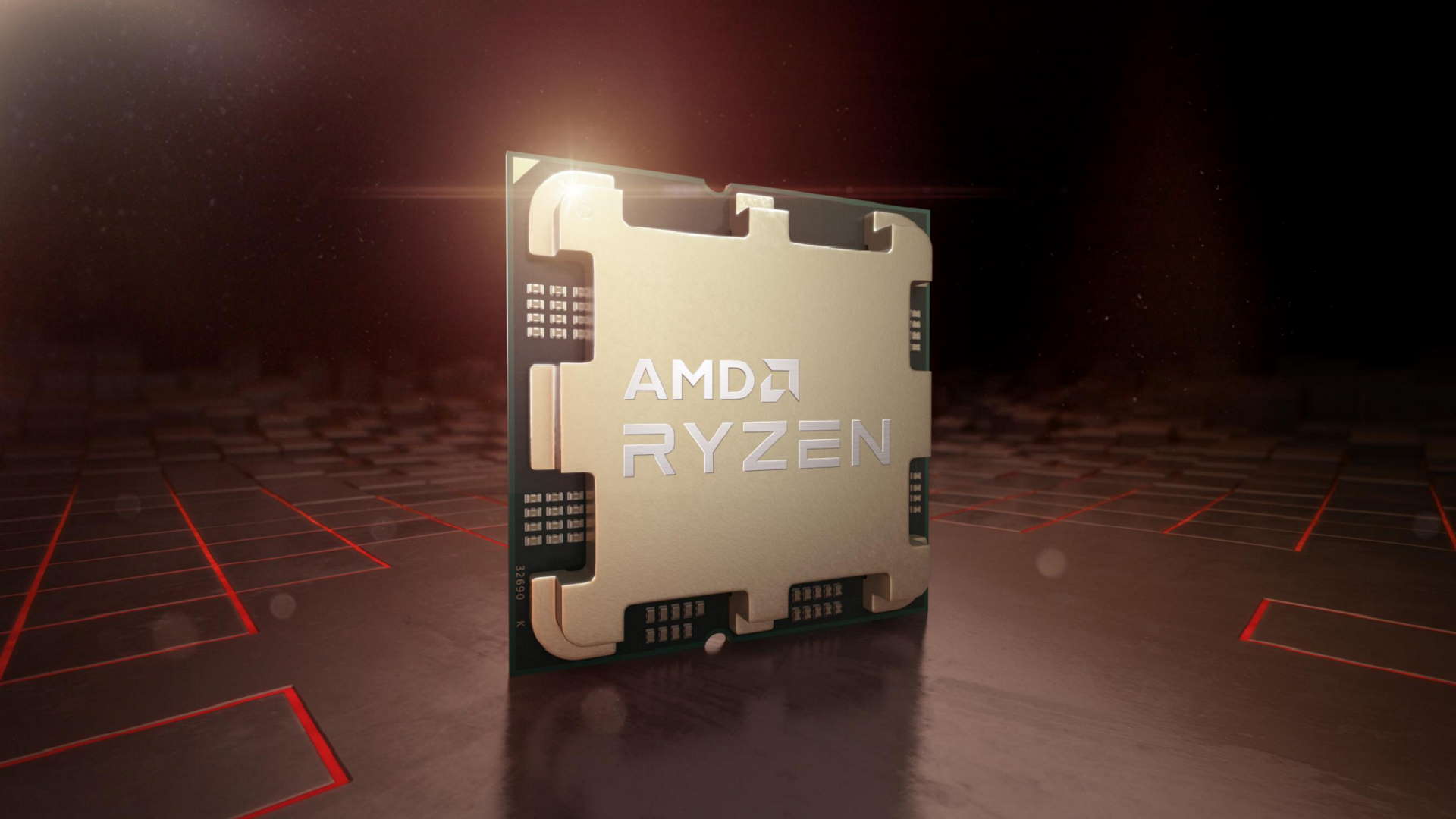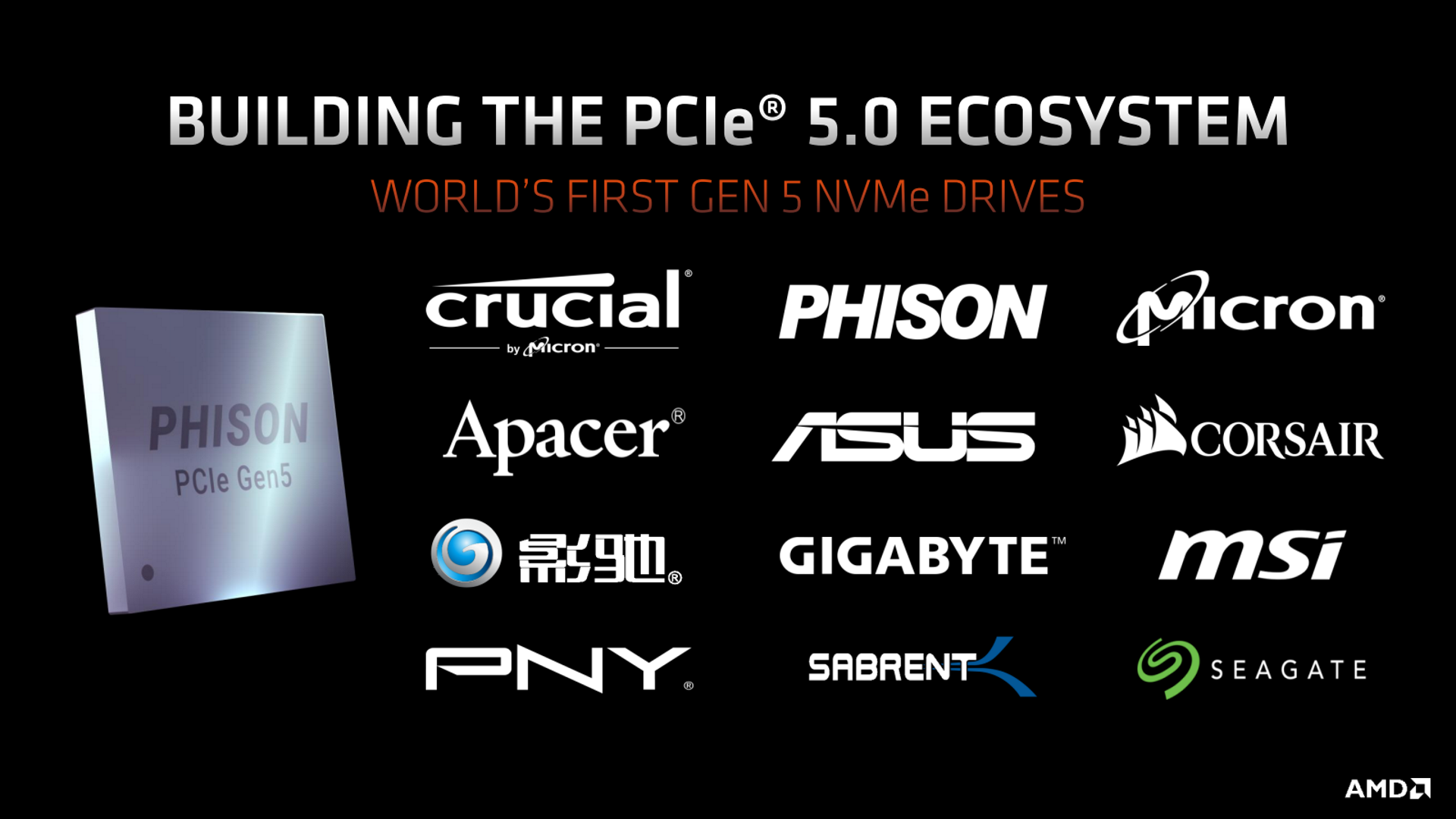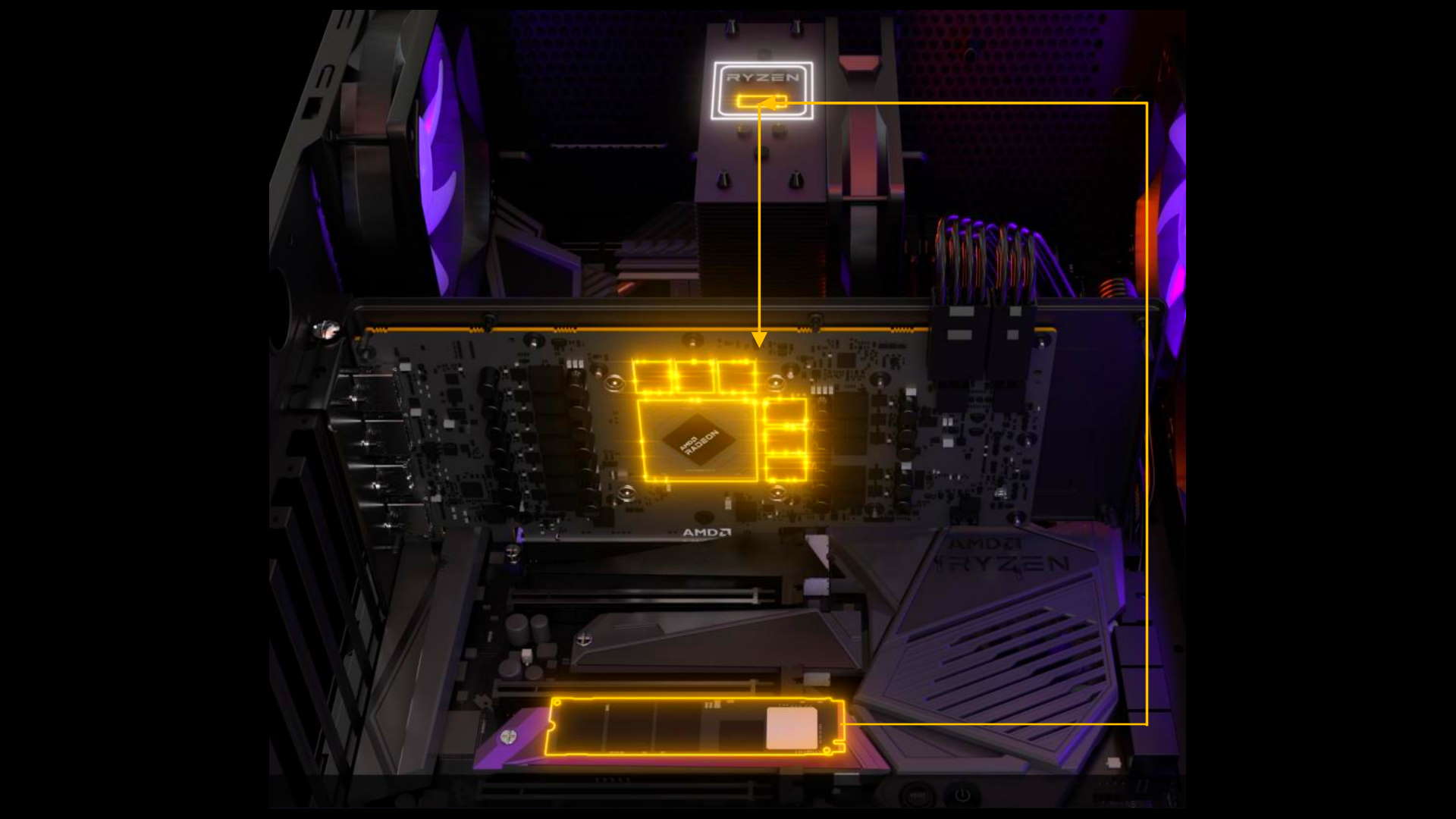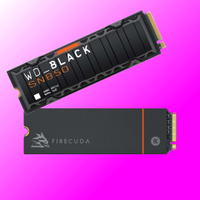AMD confirms first PCIe 5.0 SSDs will launch alongside Zen 4
AMD is working with Phison, Crucial, and Micron to produce the first PCIe 5.0 NVMe SSDs in time for the AM5 launch.

AMD has confirmed that PCIe 5.0 SSDs will be timed to release alongside the Zen 4 AM5 platform when it releases later this year. It is actively working with the storage industry to ensure that next-gen drives are ready for when the platform goes live, obviously hoping to make it the platform of choice for storage heads, much like it managed with Zen 2 and the support for PCIe 4.0.
AMD has already unveiled plenty of exciting info about its Zen 4 architecture at this year's Computex, from hitting 5.5GHz when running Ghostwire Tokyo to beating Intel's Core i9 12900KS in Blender rendering.
It's on the connectivity front that Ryzen 7000 promises some big things though, with support for PCIe 5.0 graphics cards and NVMe storage straight out of the gate when it's released later this year.
AMD's moving over to a new AM5 platform with Zen 4, which includes such things as DDR5 support, plenty of USB connectivity, a shift to having the pins on the motherboard as opposed to the CPU, and of course, the aforementioned PCIe 5.0 support.
The platform as a whole—that's the processor and motherboard chipset together—will offer up to 24 lanes of PCIe 5.0 connectivity, with at least four of these lanes being dedicated to next-gen storage.
AMD announced three different motherboard chipsets at Computex: the X670 Extreme, X670, and B650. There are varying levels of PCIe 5.0 graphics support from the motherboards packing these chipsets, with the B650 sticking to PCIe 4.0 graphics, but all of them support at least one PCIe 5.0 NVMe SSD drive. Great news for storage junkies.

Having a slot to slip your next-generation storage into is only part of the equation though, you also need the actual PCIe 5.0 SSDs. AMD is on the case though, "We're working very hard with our partners to make PCIe Gen 5 available" says Robert Hallock in our Computex pre-briefing.
Keep up to date with the most important stories and the best deals, as picked by the PC Gamer team.
As David McAfee said in the main Computex keynote, "AMD has partnered with Phison as well as storage device manufacturers like Crucial, and Micron to bring this incredible performance uplift to the AM5 platform."
"We expect to see the first devices from Crucial and Micron, available in the consumer market timed with the introduction of the AM5 ecosystem. Followed by new devices from other partners like Gigabyte, MSI, Corsair, and many more shortly thereafter."
Even at this early stage of development, this partnership is seeing sequential throughput hitting over 60% improvement over the current generation. When you consider that the best PCIe 4.0 drives hit 7,300MB/s that means they're already getting close to 12GB/s with early silicon. Impressive.

It's fair to say that sequential throughput isn't huge for gamers as things stand today, as games rarely just pull off a load of data in one go, but this could change as DirectStorage starts to take hold. AMD has its SmartAccess Storage lined up to support DirectStorage on its Radeon GPUs when that happens—we expect straight sequential throughput to be more important as world/level data is streamed across to the GPU. Fast sequential throughput is also useful for Windows when moving around larger files—video capture for example will benefit from this.
The first NVMe PCIe 5.0 drives are due to be released as Ryzen 7000 launches. We don't have an exact date of when that will be, beyond the 'fall' timeframe, but the fact that AMD has unveiled so much at this year's Computex is a good sign that things are lining up well.
Best SSD for gaming: The best solid state drives around
Best PCIe 4.0 SSD for gaming: Speedy drives
The best NVMe SSD: Slivers of SSD goodness
Best external hard drives: Expand your horizons
Best external SSDs: Fast, solid, and portable
Alan has been writing about PC tech since before 3D graphics cards existed, and still vividly recalls having to fight with MS-DOS just to get games to load. He fondly remembers the killer combo of a Matrox Millenium and 3dfx Voodoo, and seeing Lara Croft in 3D for the first time. He's very glad hardware has advanced as much as it has though, and is particularly happy when putting the latest M.2 NVMe SSDs, AMD processors, and laptops through their paces. He has a long-lasting Magic: The Gathering obsession but limits this to MTG Arena these days.



